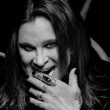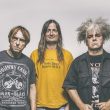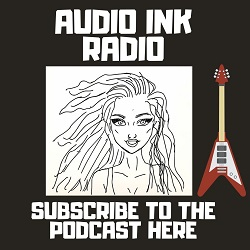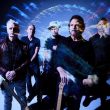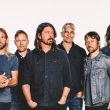Richie Kotzen on ’50 for 50,’ Coronavirus, the State of Rock Music + More
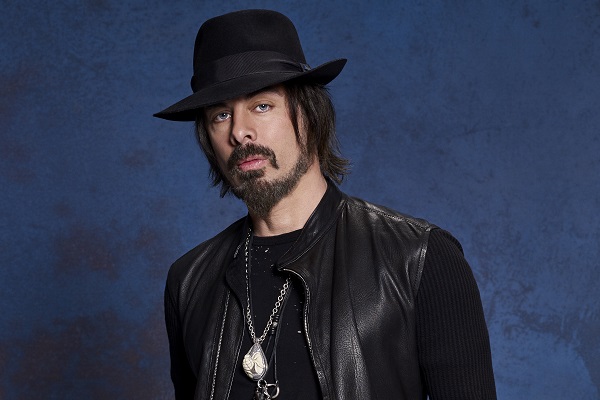
Richie Kotzen – Story by Anne Erickson, photo by Larry Dimarzio
Richie Kotzen speaks with Anne Erickson about his groundbreaking new album, “50 for 50,” the current coronavirus pandemic and much more in this in-depth interview
Richie Kotzen is a musician of many sonic textures and styles. On his latest album, “50 for 50,” Kotzen covers the musical spectrum, from raw, real rock ‘n’ roll to soulful R&B to heavy, guitar-driven hard rock. The release packs 50 original songs, each with their own character.
Kotzen spoke with Anne Erickson of Audio Ink about “50 for 50,” the current coronavirus scare, the state of rock and metal music and more. Read the full interview below, and listen via the Audio Ink podcast.
Anne Erickson: Congratulations on the success of your new album, “50 for 50.” What a cool concept to release 50 songs in honor of your 50th birthday. What gave you that idea?
Richie Kotzen: It would have been a normal length record, but while I was on tour, I was carrying around a hard drive that had a lot of my other songs on there in various forms of completion, and I started going through all this stuff, and I was thinking, I have a lot of ideas and material lying around, and I hated the idea of having incomplete stuff lying around. So, when I got home, I started working on stuff, and before I knew it, I had more than 30 songs done and thought to myself, Why not release all this at once? Get it out of my life! (Laughs) I was turning 50 in February, so I thought, if I can stop when I hit the number 50 and put out a 50-song record of original material, that could be an interesting talking point. And here we are!
Was turning 50 especially significant to you?
No– it doesn’t really matter to me at all. It could have been 47 or 38 or 61. It’s made up by people keeping track of this sort of thing, but it is significant in the sense of the way we are as people. I thought, if I could tie this into something creative and musically, it would mean more. As far as turning 50, it doesn’t really phase me one way or another.
Do you have a favorite song off the album or one that means the most to you?
Sure! Obviously, with 50 songs, one of the hardest things for me to do was figure out what song to lead the record with. In today’s time, for an artist like myself, radio doesn’t really come into the equation, but videos do, because if you put out a single, the visual seems to get people to know about the song. So, I knew whatever song I put out first, I’d have to have a visual for it. Then, the concept of “Devil’s Hand” came to me, and that song encompasses a lot of elements of what separates me, in that it has the guitar solo at the end and how the song is lyrically and how the story is concerned. So, I had this concept for the video, and shot for shot, I was picturing it in my head. We went out and did the video in three days, and it fits well with the song and did a great job to introduce the record.
My favorite track off the record is “Pray for Me.” What was the inspiration for that one?
Oh, wow! You really listened if you’re able to pick that one out– that’s good. That song was recorded in a hotel room in Japan. I had my laptop and a relatively inexpensive microphone and had the idea of the song, and on there, you’ll hear some kind of percussion happening, and that’s me tapping on a desk and snapping my finger. I recorded it and treated it as a drum loop of sorts. All the sounds you hear as percussion are my hands hitting various things in my hotel room! The vocal was cut with an inexpensive microphone. Initially, when I did it, it sat on my drive for a long time, and when I found this song, I liked everything I did until the second verse and chorus, so I re-sang the second verse and chorus with a proper studio mic. If you listen to the track, when you hear the second vocal, it sounds more open and bigger, and that’s why.
A lot of people compare your voice to Chris Cornell, which is a great compliment, but when I hear you, I hear a comparison with Myles Kennedy of Alter Bridge and Slash. Have you ever been told that?
I don’t think I’ve heard that, but he’s great. Anytime you get compared to someone great, it’s a compliment, so I take it all as a compliment. My influences growing up and where I modeled myself with the rock guys were Paul Rodgers from Bad Company and Free, and the early Rod Stewart stuff is really where I got the raspier element of my voice, trying to emulate Rod Stewart’s earlier work, and R&B singers like Stevie Wonder.
Who are some of your other main vocal inspirations?
Terence Trent D’Arby was a big vocal influence for me, and I think a lot of people will compare me to the guys you mentioned, because in the top register I have a lot of grit and grind to my voice, but that tone came from me listening to guys like Terence, and if you listen to Deep Purple when Glenn Hughes and David Coverdale were in the band. A lot of the guys who compare me to Cornell should go listen to the early Deep Purple stuff, because that combination of Hughes and Coverdale was very inspiring to me.
What are your thoughts on the coronavirus pandemic happening right now and how so many shows and festivals are being canceled for it?
I don’t quite understand it and why there’s this crazy pandemonium around it, because… what did they say? The latest news is that 24 people died (Editor’s note: More have died since this interview took place a few days ago), but all of them had other ailments, so it’s not much different from someone already being sick and the flu taking them down. I’m not a doctor, but for some reason, with this, it seems there’s way more of a crazy panic around this thing that I don’t quite understand. I remember in the ’90s, I had a lot of friends die from AIDS, and I don’t remember this much panic then. I don’t quite get it. I don’t want to undermine it, but it seems very strange.
I would imagine some of these people canceling concerts is not because the people putting on the concert ware worried about being sick. I think there are a lot of other elements that are in play. If you’re in another country, like Italy now is under quarantine, so if you’re in another country and suddenly you can’t leave or get stuck on a cruise ship, that’s the real thing. Now, I’m hearing any event over 1,000 people, they’re not going to have those kinds of events somewhere in California that was implemented. I hate to say it seems like a massive overreaction, but when you look at numbers and past viruses, this seems a little strange to me, but I’m not a scientist, so I don’t know. I have no idea.
What are your thoughts on the argument that “rock and metal are dead?”
If you’re comparing it to what it was when I was a teenager, I think that’s a valid argument. I mean, it’s not dead. It’s definitely not dead, but it’s definitely not anywhere near or close to being in the mainstream. It’s culture driven. At one time, people were into guitars and live people playing real instruments, and then things changed and technology created a situation where folks who normally wouldn’t be able to make records can make a record, and rightfully so, because if you have a creative idea and the technology is there, then go for it.
There’s so much more out there, and young people are less interested in the things people like me would have been interested in when we were that age, like rock music and electric guitars and Marshall amps. It is what it is. I still write what I write. I enjoy playing guitar and singing, and I like real drums, and I like drum loops, too. Anything that can be added to the creative process. But, it’s not the mainstream and has not been for a very long time, since sometime in the late-’90s. Even then, the rock bands stopped putting guitar solos in their songs.
- The Most Underrated Iron Maiden Album of All Time - July 12, 2025
- The Bands That Quietly Started the Grunge Rock Movement - July 9, 2025
- The Most Underrated Pearl Jam Album of All Time - July 4, 2025



